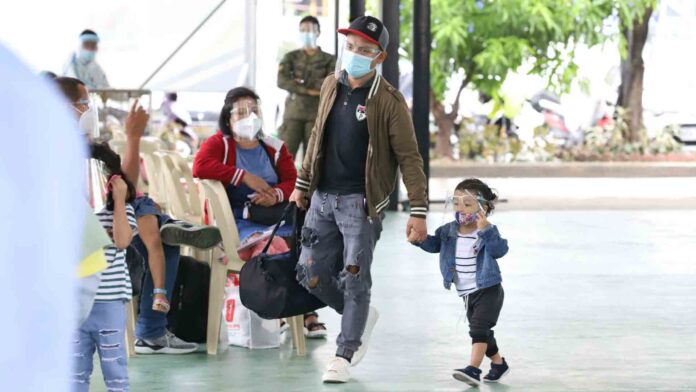The Balik Probinsya, Bagong Pag-asa (BP2) program prioritizes families when evaluating beneficiaries as being together will help them settle without thinking of anybody who may be left behind.
Ma. Consuelo Acosta, Department of Social Welfare and Development (DSWD) deputy national program manager of the Kapit-Bisig Laban sa Kahirapan-Comprehensive and Integrated Delivery of Social Services, said in an interview on Thursday that individuals disqualified from the program are referred to the Crisis Intervention Unit.
“Kasi ang aim natin dito, families, sama sama na talaga silang bumalik. Kasi may tendency na pag may naiwan, posible talaga silang bumalik (Our aim here is to send them home as families because if they go to the province and others are left behind, there is a tendency that they will still return here),” Acosta told the Philippine News Agency during the dispatch procedure for BP2 beneficiaries who will fly home to Leyte on Friday.
Thirteen families composed of 49 individuals, with the youngest just a month old, are included in the latest batch.
Two other families backed out at the last minute “due to personal reasons”.
DSWD, Acosta said, plays an important role in the BP2 program, starting from the evaluation of possible beneficiaries.
“From the very start hanggang end, hindi namin sila binibitawan . At the start ina-asess namin sila kung eligible sila (until the end we don’t let go of them. At the start we assess them if they are eligible) and then we provide assistance that is needed, after that we continuously provide the services. We provide case management until such time that they can go on their own,” Acosta said.
Aside from the transportation allowance that includes pocket money provided by the DSWD, families are given Transitory Family Support Package.
This fund, Acosta said, may be used for educational assistance, food, and other personal needs.
“The funds are good for three months na magagastos nila kasi ito ‘yung transition period na mag-a-adjust sila, maghahanap ng trabaho (that they can spend while in the transition period and while adjusting until they find work),” she said.
Most of the beneficiaries told the DSWD that they went to Metro Manila because of the lack of livelihood opportunities and basic services in the provinces.
Acosta said these are the services that they try to give to BP2 beneficiaries to ensure that they remain in the province.
“That is why when we send them back to the provinces, we see to it that we are able to provide the livelihood assistance, the basic services para hindi na sila bumalik dito sa Metro Manila, ‘yun ang sisigurado natin (so they stay there and not go back to Metro Manila. That is what we ensure),” she said.
Upon arrival in provinces, a Memorandum of Agreement is signed among the receiving local government unit, beneficiary, and the DSWD where their roles are specified.
Social workers monitor and assist the beneficiaries.
Acosta said once beneficiaries are proven taking advantage of the BP2 program, they are immediately disqualified. (PNA)






